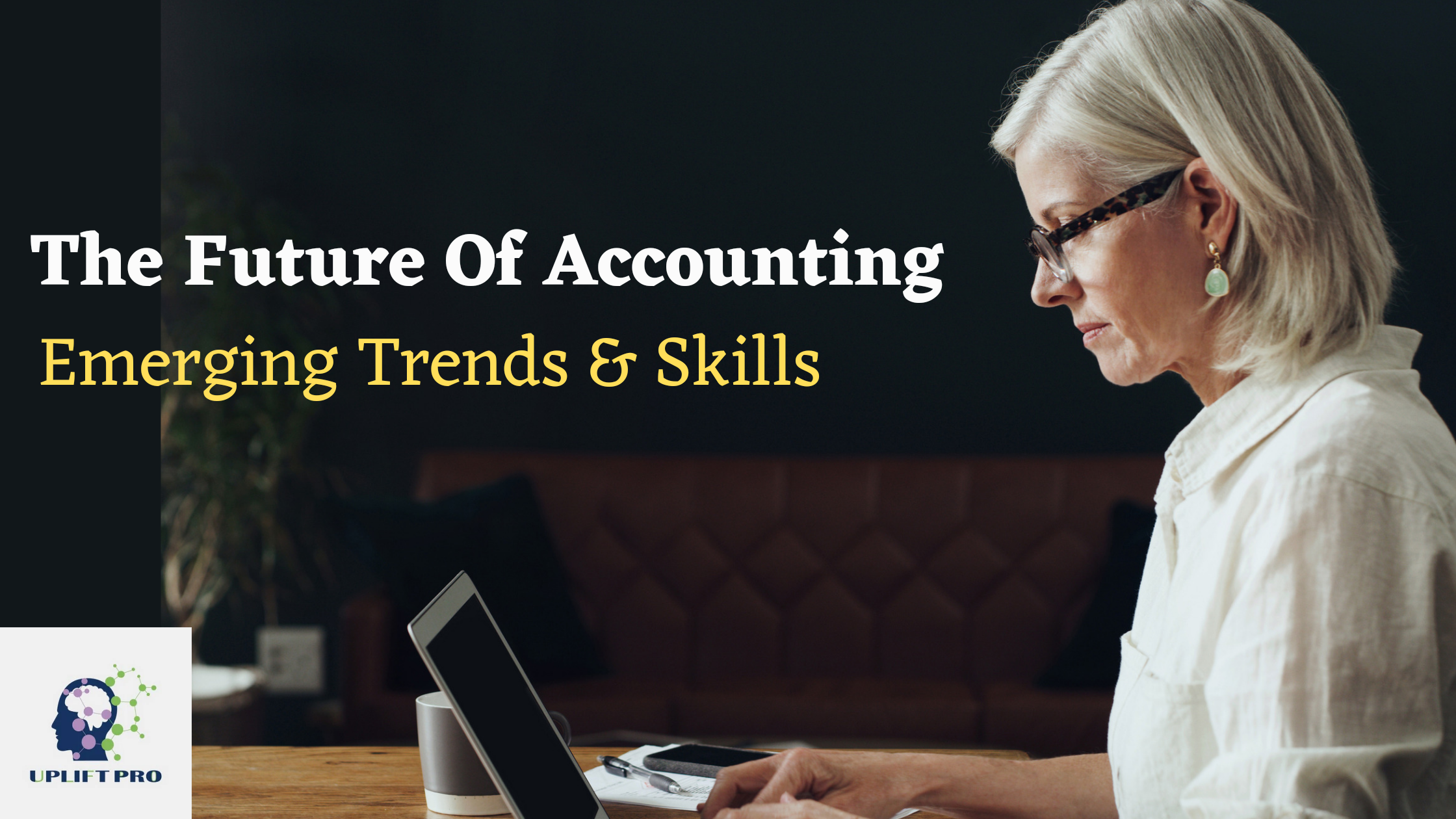The field of accounting is undergoing significant transformations due to advancements in technology, changes in regulatory environments, and evolving business landscapes. Here are some emerging trends and skills shaping the future of accounting:
Emerging Trends:
1. Technology Integration:
- Automation and AI: The use of automation, artificial intelligence, and machine learning is becoming prevalent in routine accounting tasks, allowing accountants to focus on higher-value activities such as analysis and strategy.
- Cloud Computing: The adoption of cloud-based accounting software is on the rise, enabling real-time collaboration, data accessibility, and cost-effective solutions for businesses of all sizes.
- Blockchain Technology: Blockchain is revolutionizing the way transactions are recorded and verified. It enhances transparency, security, and efficiency in financial processes, reducing the need for traditional ledgers.
- Data Analytics: Accountants are increasingly using data analytics to extract meaningful insights from large datasets. Analytical skills are becoming crucial for interpreting financial data and informing business decisions.
- Cybersecurity: With the increasing reliance on digital platforms, the protection of financial data from cyber threats is a growing concern. Accountants need to be well-versed in cybersecurity measures to safeguard sensitive information.
2. Sustainability Reporting:
There is a growing emphasis on sustainability and environmental, social, and governance (ESG) reporting. Accountants are expected to integrate non-financial metrics into their reporting practices.
3. Remote Work and Flexibility:
The rise of remote work, accelerated by global events, is influencing the way accounting professionals collaborate and conduct their work. Virtual teams and flexible work arrangements are becoming more common.
4. Regulatory Changes:
The accounting profession is subject to evolving regulations and compliance standards. Accountants need to stay updated on changes in accounting standards, tax laws, and financial reporting requirements.
5. Client Advisory Services:
Accountants are increasingly taking on advisory roles, providing strategic guidance to clients based on financial analysis and insights. This shift from a compliance-focused role to advisory services adds value to clients.
6. Globalization and International Standards:
As businesses operate on a global scale, accountants need to be familiar with international accounting standards and regulations to ensure accurate financial reporting and compliance.
Emerging Skills:
1. Digital Literacy:
Accountants must be digitally literate, with proficiency in using accounting software, data analytics tools, and other technology platforms.
2. Analytical Skills:
The ability to analyse large datasets and extract meaningful insights is becoming increasingly important for accountants to support decision-making.
3. Cybersecurity Awareness:
A solid understanding of cybersecurity principles is essential to protect financial data and ensure the integrity of accounting systems.
4. Communication Skills:
As accountants take on advisory roles, effective communication skills are crucial for conveying financial information and insights to non-financial stakeholders.
5. Adaptability and Continuous Learning:
The accounting profession is evolving rapidly, and professionals need to be adaptable and committed to continuous learning to stay abreast of emerging trends and technologies.
6. Critical Thinking:
The ability to think critically and solve complex problems is valuable for accountants facing new challenges and uncertainties.
7. Ethical Judgment:
With increased reliance on technology and data, ethical judgment is essential to ensure the integrity and confidentiality of financial information.
8. Interpersonal Skills:
Collaborative and interpersonal skills are important for accountants working in cross-functional teams, especially in a remote or virtual work environment.
9. Strategic Vision:
Accountants are expected to contribute strategically to the organization’s goals. A strategic vision helps in providing valuable insights and guidance for decision-makers.
10. Sustainability Expertise:
Understanding sustainability practices and incorporating ESG factors into financial reporting requires expertise in sustainable business practices.
To sum up, as the accounting landscape evolves, accounting professionals need to embrace these trends and continually update their skills to stay relevant in a dynamic and technology-driven environment.
For Further Information/Assistance: Contact Us
